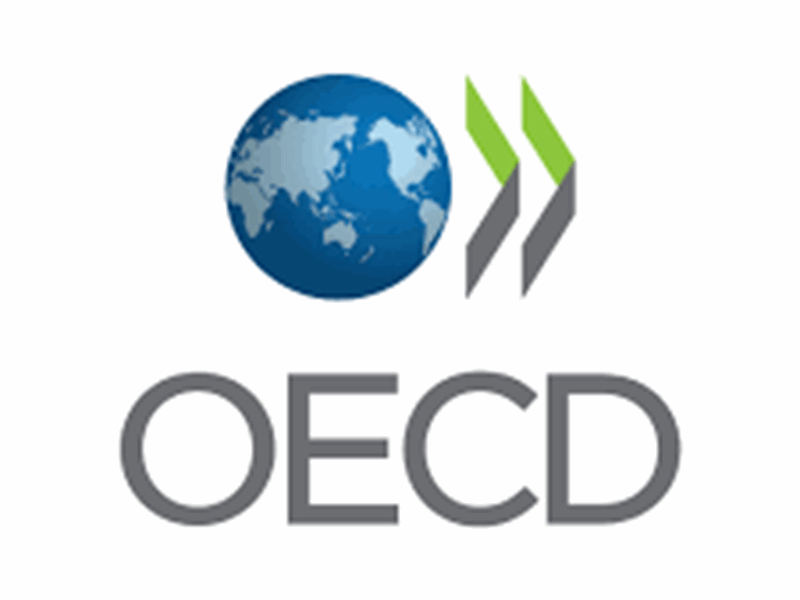Fresh Ideas Emerge for New EU Budget Levies

Broadening the Gains from Generative AI: The Role of Fiscal Policies
Generative artificial intelligence (gen AI) holds immense potential to boost productivity growth and advance public service delivery, but it also raises profound concerns about massive labor disruptions and rising inequality. This note discusses how fiscal policies can be employed to steer the technology and its deployment in ways that serve humanity best while cushioning the negative labor market and distributional effects to broaden the gains. Given the vast uncertainty about the nature, impact, and speed of developments in gen AI, governments should take an agile approach that prepares them for both business as usual and highly disruptive scenarios.

A Toss Up? Comparing Tax Revenues from the Amount A and Digital Service Tax Regimes for Developing Countries
This paper attempts to estimate the tax revenues to be gained by the Member States of ATAF, WATAF, AU and the South Centre under the Amount A and an alternative stylized DST taxation regime. Our research demonstrates that the comparative revenue effects of the Amount A and DST taxation regimes largely depend on (a) the mix of relevant domestic economic activities at market jurisdictions (i.e., revenues sourced to the country as a market jurisdiction under Amount A and the level of revenues from automated digital services generated in the country), (b) design details of the DST regime such as the DST tax rate and the nature of activities to be taxed and (c) the relief from double taxation, if any, countries will grant to domestic and foreign taxpayers under DST.

Zero Draft Terms of Reference for a United Nations Framework Convention on International Tax Cooperation
In adopting resolution 78/230, “Promotion of inclusive and effective international tax cooperation at the United Nations,” the General Assembly emphasized that developing a United Nations framework convention on international tax cooperation is needed in order to strengthen international tax cooperation and make it fully inclusive and more effective. Therefore, the General Assembly established a Member State-led, open-ended ad hoc intergovernmental committee for the purpose of drafting terms of reference for a United Nations framework convention on international tax cooperation. The ad hoc intergovernmental committee recommends for consideration by the General Assembly these draft terms of reference.

International Compliance Assurance Programme (ICAP) Frequently Asked Questions
The OECD provided an updated FAQ document regarding the international compliance assurance program (ICAP) to provide clarifications about the voluntary initiative, which aims to encourage multilateral discussions among large MNEs and tax authorities and to enhance tax certainty.

A Scrap Game: Impacts of the EU Carbon Border Adjustment Mechanism
Following the European Commission’s initial CBAM proposal in July 2021, Sandbag and E3G released the report A Storm in a Teacup: Impacts and Geopolitical Risks of the European Carbon Border Adjustment Mechanism. This report takes stock of the legislative situation and evaluates the impact of the CBAM on the EU’s main trade partners from a revenue-cost perspective, based on new rules and updated data, with a particular focus on China.

2024 Progress Report on Tax Co-operation for the 21st Century
This report sets out the advances being made in implementing the vision for co-operation amongst tax administrations with a specific focus on the Global Minimum Tax. It also sets out areas of tax co-operation beyond the corporate tax system looking at recent developments in the exchange of information between tax administration as well as other transparency initiatives with respect to taxation of individuals. Finally, it addresses the implications of these developments in the international tax system for developing countries with respect to both direct and indirect taxes as well as the digitalisation of tax administration.

Taxation and the Realisation of Socioeconomic Rights in Africa: What Is the Role of International Cooperation?
Drawing on existing human rights instruments and literature, this chapter locates and develops an international cooperation model as a useful vehicle for the realization of socioeconomic rights in Africa by using Nigeria as a case study. Through the lens of Third World Approaches to International Law, the chapter engages with the structural and economic imbalances between developed states and developing states, making most African states unable to effectively deploy taxation to realize socioeconomic rights. The authors discuss the limits of the duty to cooperate. It argues that the duty requires developed states to provide economic and technical support, avoid being tax havens, and ensure that their multinational corporations operating in Africa are not only tax law-compliant but also complying with human rights obligations.
Philip Oamen & Adebolarin Adekanle, Taxation and the Realisation of Socioeconomic Rights in Africa: What Is the Role of International Cooperation?, (Eghosa Ekhator et al.)(forthcoming 2024).

The Role of the Investor Motive in the Effectiveness of Tax Incentives: Evidence for FDI Location in Indonesia
This paper explores the relationship between tax incentives and the FDI location motive as a possible reason for the mixed empirical evidence. Specifically, it examines – for Indonesia -- if the tax incentives are more effective where costs considerations matter, and if they are allocated indiscriminately with respect to the investment motive. The study is based on a survey of 224 foreign-owned plants. The authors find that tax incentives are allocated randomly by motive, and that the incentives are less likely to go to labor, implying that cost considerations do not matter for the effectiveness of the incentives. Among the possible reasons for this, the authors suggest that incentives may serve objectives that are beyond the purely economic.

Tax Hybridity and the Globalization of Taxation: Convergence, Borrowing, Culture
Tax is a hybrid of civil, common, public, and private law. Tax law has become an all-purpose tool for legislators. This article argues that the success of the BEPS projects depends on the uniformity of taxation principles through the convergence of systemic differences. Tax hybridity should nudge jurisdictions to harness their legal creative power. This should facilitate tax working towards transparent uniform rule-making that is free from opportunities for arbitrage and competition. This global cooperation on convergence and uniformity free from tax competition will depend on revenue distribution between nations. The author argues that this revenue distribution is necessary for developing nations to build a more effective tax system.

A Global Minimum Tax for Large Firms Only: Implications for Tax Competition
The Global Minimum Tax (GMT) is applied only to firms above a certain size threshold, permitting countries to set differential tax rates for small and large firms. The authors analyze tax competition between a tax haven and a non-haven country for heterogeneous multinationals to evaluate the effects of this partial coverage of GMT. The paper shows that the introduction of a moderate GMT increases tax revenues in both the haven and the non-haven countries. Gradual increases in the GMT rate, however, induce the haven to set a discriminatory, lower tax rate on small multinationals, causing revenues in the non-haven country to decline at the switch of regimes.


































